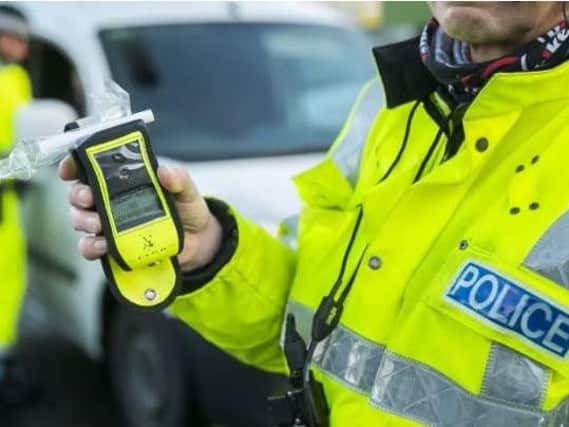Festive drinkers warned of risks as rural areas top breath-test charge table


Figures obtained by the Press Association indicate Lincolnshire prosecutes the most per population, followed by North Wales, Warwickshire, Dyfed-Powys and North Yorkshire.
The results, based on Freedom of Information requests, prompted calls for better public transport in rural areas and warnings to anyone tempted to drink and drive over the festive period.
Advertisement
Hide AdAdvertisement
Hide AdA total of 31 forces out of 45 provided figures over a 12 month period to May 2017.
The results showed that Lincolnshire charged 1,035 motorists, 14 per 10,000 population.
North Wales Police was second with 11.2 charges per 10,000 followed by Warwickshire Police with 10.5, Dyfed-Powys with 9.5 and North Yorkshire with 9.2.
In the North East, Cleveland had the highest rate after charging 484 motorists - or 8.61 per 10,000 population.
Advertisement
Hide AdAdvertisement
Hide AdCumbria was 421 (8.45), Northumbria 1,003 (6.98) and Durham 389 (6.22).
Police Scotland had the highest overall total, at 3,797.
But the force covers the biggest area and the second largest population, and has a lower legal limit than the rest of the UK - 22 micrograms per 100ml of breath, compared to 35 micrograms.
Chief Superintendent Stewart Carle, Police Scotland's road policing lead, said the trend is actually downwards.
AA president Edmund King said the figures could relate to poorer public transport.
Advertisement
Hide AdAdvertisement
Hide AdHe added: "It could also be down to more targeted police enforcement, but whatever the reasons, there is no excuse for drink-driving."
The figures come with the annual crackdown on drink-driving over the festive period under way.
Separate figures published last week by the Institute of Alcohol Studies suggested the number of breath tests carried out on England's roads has fallen by 27% in five years as forces cut traffic officer numbers.
Jason Wakeford, director of campaigns for road safety charity Brake, said: "Drink-driving remains one of the biggest killers on our roads, causing devastation to families up and down the country.
"It is essential that police forces are provided with the resources they require to crack down on drink-drivers throughout the year."